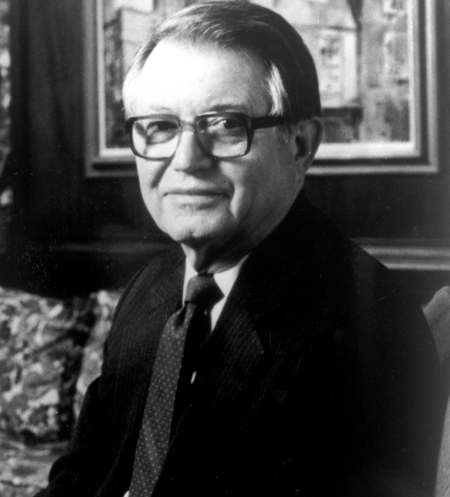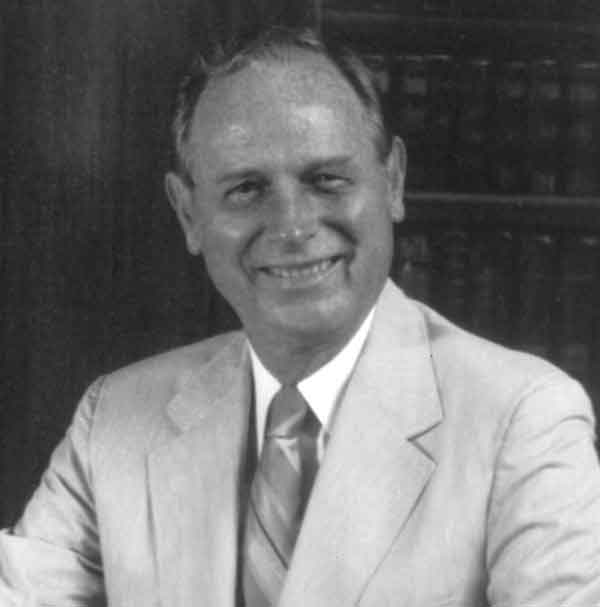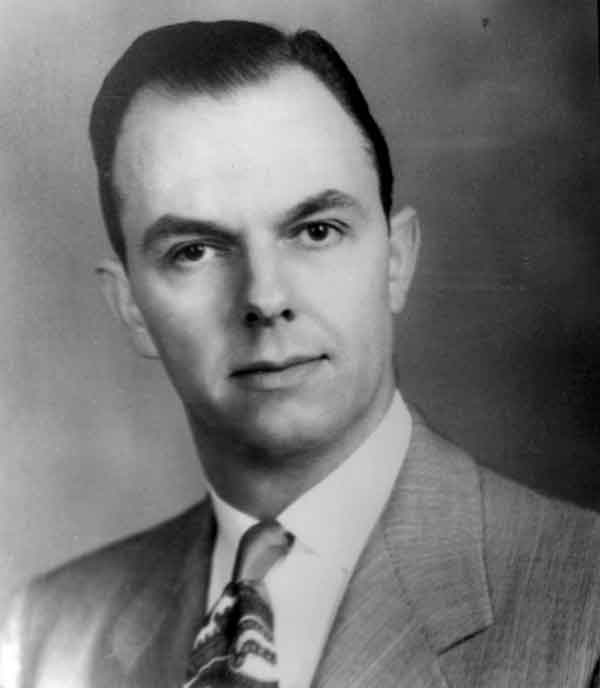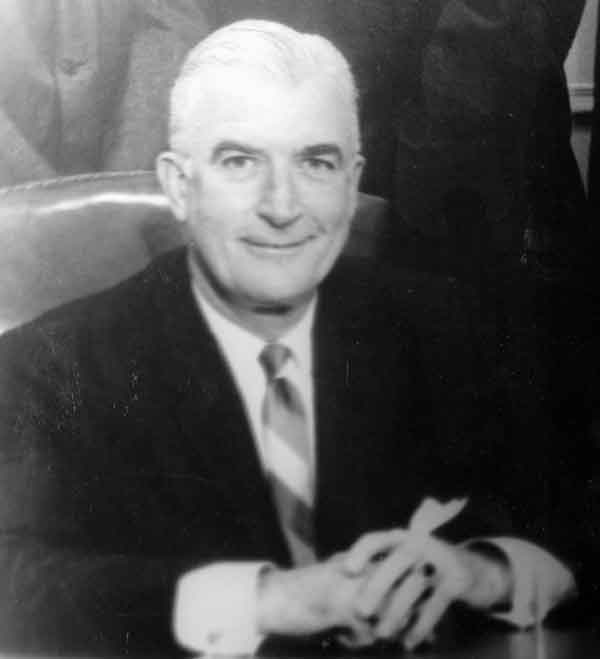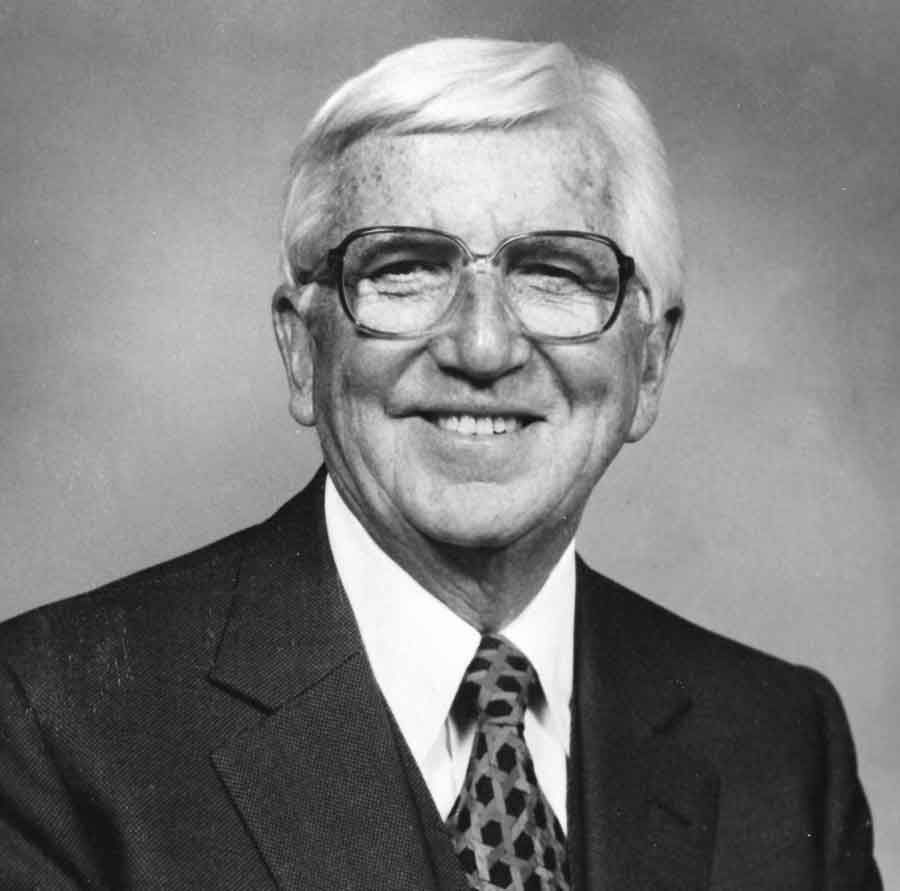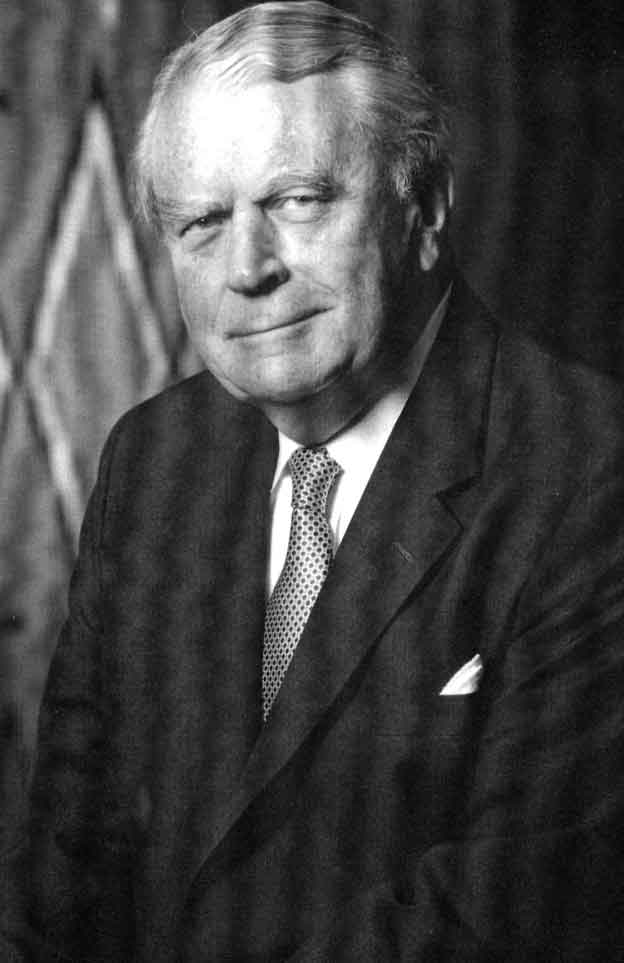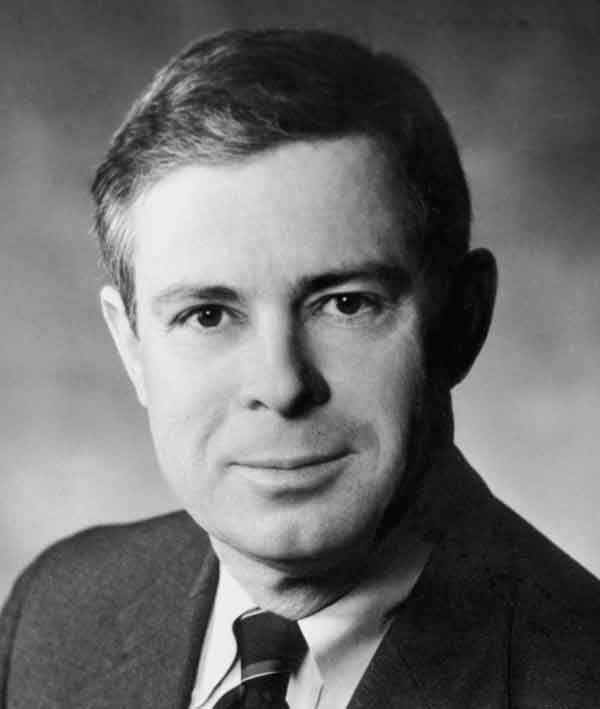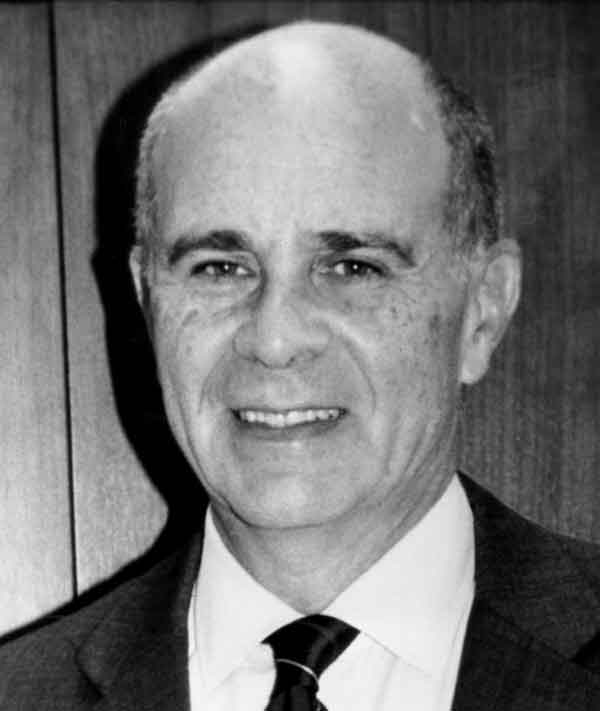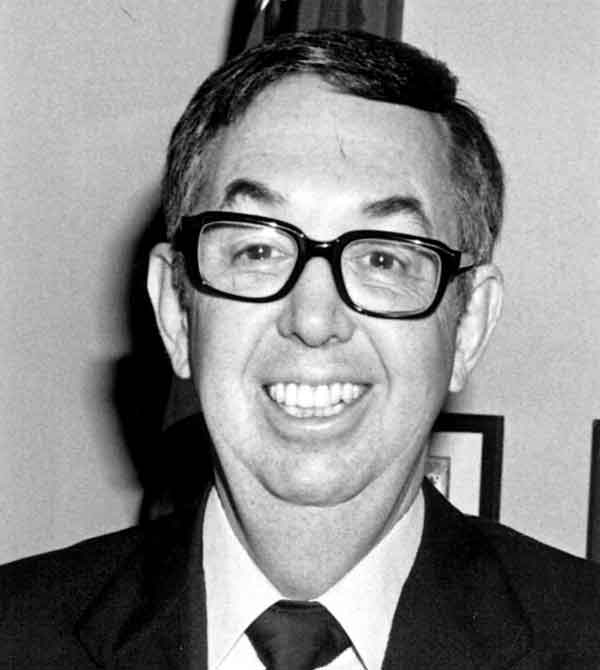E. Cabell Brand grew up in a highly conservative, wealthy family in Salem, Virginia. Upon his graduation from Andrew Lewis High School in 1940, he decided to become the next in his family’s long line of Virginia Military Institute (VMI) graduates. It was during his time at VMI that he began to pay close attention to society’s injustices. Liza Urso, Cabell’s stepdaughter, recalls a story he often told of being a young man and bringing a Black friend home to spend the night while he was passing through town. “Cabell was so surprised, aghast, and confused at his father’s violent, racist reaction, when Cabell had never thought of his friend as being any different…that really opened Cabell’s eyes, mind, and heart to the disparate opportunities of certain segments of the population,” she explains.
During his first year at VMI, Cabell was called to Germany to serve in World War II. Following the war and his eventual graduation from VMI, Cabell returned to Europe to help implement the Marshall Plan. That experience spurred his life-long penchant for public service. “When he was in the war, he was seeing the devastation. He was seeing the poverty and the homelessness that the war triggered. It just sort of opened his eyes to how lucky he was and how sheltered he’d been,” says Caroline Brand, Cabell’s daughter.
While in Europe, Cabell learned of another struggle taking place back home. His family’s shoe business, founded by his grandfather in 1904, was on the verge of collapse. Never one to back down from a fight, Cabell returned home and got to work. The soon-to-be Stuart McGuire Company became a booming business, with Cabell as its president.
Cabell’s work as a businessman allowed him to control his schedule, giving him the freedom to pursue his calling to fight poverty and injustice. “He believed that society was only as strong as its weakest member. We couldn’t really consider ourselves successful until we were all given the same opportunity and the same access to that opportunity. You must level the playing field and then it’s fair,” explains Caroline. Liza adds, “There are two main guidelines that he lived by. First, everybody is equal. The color of one’s skin or the size of one’s bank account or home has nothing to do with what kind of person someone is. Everyone deserves to be treated equally and with great respect. Second, those who have more opportunities have an obligation to help those who don’t have those opportunities.”
When President Lyndon Johnson announced his War on Poverty and accompanying Economic Opportunity Act of 1964, Cabell seized the chance to bring real, lasting change to the Roanoke Valley. The EOA provided federal funding for the creation of Community Action Agencies, designed to fight poverty at the local level. “When the Economic Opportunity Act was passed, I believe it spoke to these feelings and thoughts which had been concerning Cabell for 20 or more years, and he saw an opportunity to make a difference,” explains Liza. Cabell and his wife, Shirley, who was pregnant at the time, agreed that he would take six months off from Stuart McGuire to pursue this funding for their community.
It wasn’t an easy task. In fact, Cabell faced pushback nearly every step of the way. “You know, it’s hard to stand up in the Roanoke Valley in the 60s and say, ‘I’m going to start this Community Action Agency to help underprivileged people,’ meanwhile people are burning crosses on his lawn,” explains Caroline.
But, yet again, Cabell persisted in the face of adversity. “His philosophy was don’t worry about what people think about you or what people say about you if you’re doing the right thing… If you’re doing the right thing, then hold your head up high and go forward with it. Don’t let your naysayers hold you back,” says Liza.
Cabell studied the EOA’s provisions, and in 1965 he was able to use his considerable business and political connections to apply for federal funding and form a nonprofit Community Action Agency. Thus, TAP was chartered as the official anti-poverty agency in the Roanoke Valley, and the rest is history. TAP’s first order of business was opening a Head Start program, which created the first integrated classrooms in the Roanoke Valley. With the help of Cabell’s leadership, TAP quickly grew to offer additional services in housing, job training, and more—an impact that is still felt today. “It’s cool to see that all that work he did is still paying off. He started something that has legs and longevity, and it’s really, truly making an impact,” notes Caroline.
Of course, Cabell didn’t stop with the Roanoke Valley. He helped turn several TAP programs into statewide organizations. He was instrumental in VMI’s decision to allow Black students into his alma mater. He even traveled to more than 100 countries and did consulting work with the United Nations. As Caroline puts it, “No challenge was ever too big for him… He always figured out a way or found the people to figure out how to make the problem solvable.”
In 1987, The Cabell Brand Center was founded with a dedication ceremony with the then President of Roanoke College, Norman Fintel, and guest speaker Sargent Shriver. Scores of local businesspeople and friends attended the ceremony on the Roanoke College campus.
“A challenge of our society and to our education institutions is providing students an opportunity to study and participate in global problems with local “hands-on” projects. The Center believes in the principle of “Think globally, act locally.” The Center with its various programs, library and networking facilities, offers both an opportunity and a challenge to students to study the two critical issues of resource limitation and global poverty, and hopefully, become involved in the action programs of their choice.” – Norman Fintel, Former President, Roanoke College
The Center was founded primarily to give students in the colleges of this region an opportunity to study and research issues of poverty, the environment, and peace. The idea was to supplement student academic projects. The student would conduct his/her research for class credit and ultimately supply the Center with a copy that would be filed and sometimes published. The Center would pay the student a stipend of $500 to $1,000 and in some instances a class project of up to $5000. Funding for these research projects came from foundation grants or from annual contributions from local corporations, businesspeople, local organizations and individuals.
Since the program’s inception, the Center has awarded and had relationships with over 500 individual projects and students at Roanoke College, Hollins University, Virginia Western Community College, Radford University, Virginia Tech, Virginia Military Institute, Washington & Lee University, and Lynchburg College.
In addition to the student projects, over the years the Cabell Brand Center has helped sponsor sustainable development seminars at Hollins University, Roanoke College and Ferrum College, with hundreds of participants at each of these seminars and with speakers from international organizations such as World Resource Institute, World Bank, USAID, US Department of State, and many others.
The activities of Cabell Brand in the areas of poverty and peace (conflict resolution) are documented in Cabell Brand’s book “If Not Me, Then Who.” These issues are still actively addressed through ongoing relationships with both national and international peace organizations. At the local level, poverty objectives continue with TAP programming in the Roanoke Valley and the expansion of the Shepherd Poverty Program from Washington & Lee University to colleges and universities across the country. The TAP program led to the launch of many innovative programs focused on public education for people from low-income households. From a national and international perspective, we collaborate with the U.S. Institute of Peace, The Carter Center, Rotary International Peace Fellowship program and others. These relationships stem from Cabell Brand’s previous involvement with the United National Development Program (UNDP) and the World Bank in economic development projects in Bangladesh, India, Egypt, and Botswana.
To this day, Total Action for Progress honor’s Cabell’s legacy by presenting the Cabell Brand Hope Award to a member of the community who shares in Cabell’s relentless pursuit of social change and work for the common good.
“People who receive this award need to feel that there’s always something else to do to help somebody else. There’s always another step and another thing on the list. They need to have that kind of vision and be forward thinking,” says Caroline. Cabell was inducted into the Southwest Virginia Business Hall of Fame in 1997 and passed away in January 2015.
E. Cabell Brand was inducted into the Southwest Virginia Business Hall of Fame in 1997.

